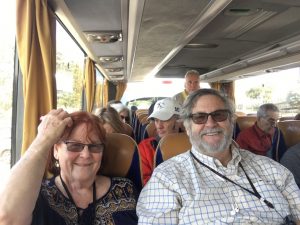
Friday was City Tour time with the bus and large groups using the headphone system to hear what the guild has to say. Our first stop was in Belém at the Monument to Fallen Soldiers.
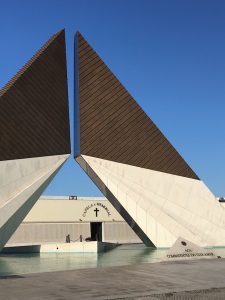
The represented a dark period in Portugal’s modern history that ultimately resulted in the overthrow of the Salazar dictatorship but the toll on Lisbon was extremely high as many of the soldiers families originated from the capital. The Overseas War took the lives of over 9,000 soldiers and lasted between 1961 and 1974 as Portugal desperately tried to retain its African colonies.
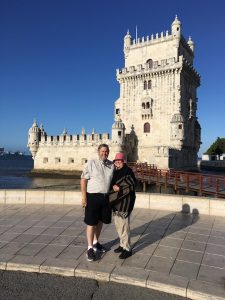
From there, it was a short walk to the Belém Tower. The Tower built in the early part of the 16th century is a fortified tower and was part of the defense system at the mouth of the Tagus River. Having survived for so long, including a major earth quack in 1755, it is the Ceremonial Gateway to Lisbon.
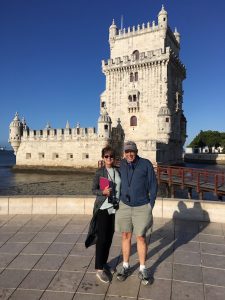
From there we boarded the buses and made our way to the Monument to the Discoveries. This monument was created to celebrate the achievements of the explorers during the Age of Discoveries and the creation of the Portugal’s empire.
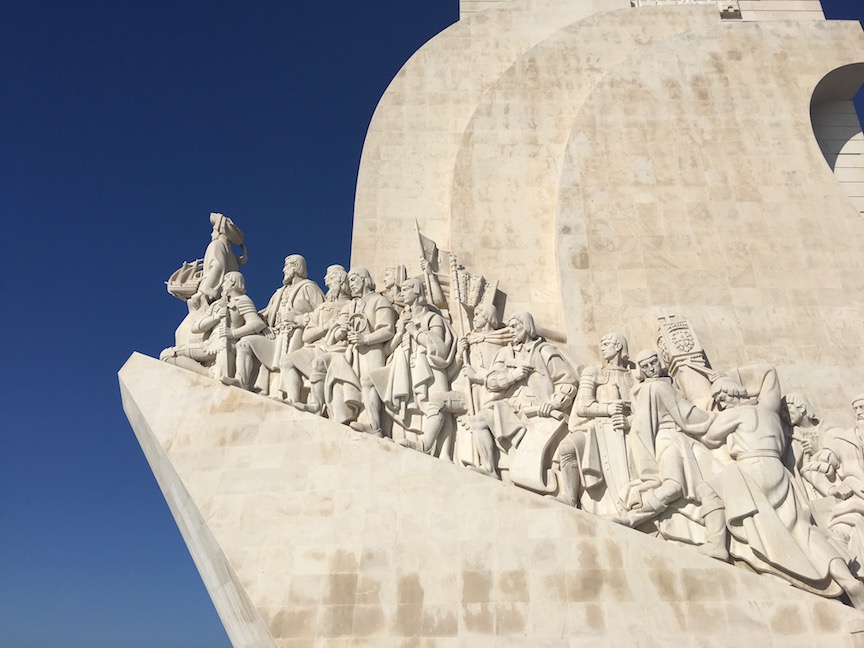
The Age of Discoveries started in 1415 with the capture of the North African city of Ceuta by the Portuguese and reached a peak at the turn of the sixteenth century when Vasco da Gama discovered a shorter route to India and Pedro Álvares Cabral discovered Brazil.
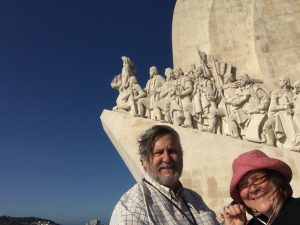
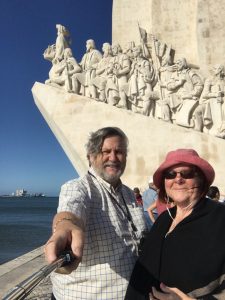
The creation of trade posts and colonies on the new trade routes led to a Portuguese empire that spanned three continents, bringing wealth to Portugal and Lisbon in particular.
The monument was built in 1960 on the occasion of the 500th anniversary of Henry the Navigator’s death. Henry the Navigator was a driving force behind the overseas exploration and he financed many of the expeditions.
The 171ft tall monument, shaped like a ship’s prow, stands at the marina in Belém, the starting point for many of Portugal’s explorers. It shows more than thirty statues of people who played an important role in the discoveries. Leading the way is Henry the Navigator who is shown standing on the bow holding a model of a caravel. Behind him are king Afonso V – who supported the exploration and colonization of Africa – and the explorers Vasco da Gama (who found a direct route to India), Pedro Álvares Cabral (discoverer of Brazil) and Ferdinand Magellan (the first explorer to circumnavigate the world). They are followed by navigators, writers, missionaries, a mathematician, a cartographer and other figures from the era of the discoveries.
After this we took a rest on the bus while the rest of the group toured a Monastery (we had visited it on our first trip to Lisbon so didn’t need to do it again).
From there a brief walking tour of the old town and then back to the Hotel.
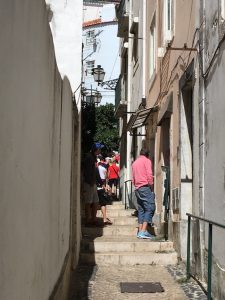
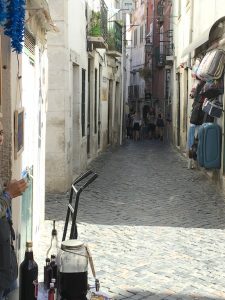
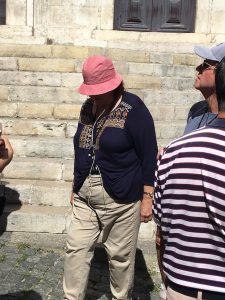
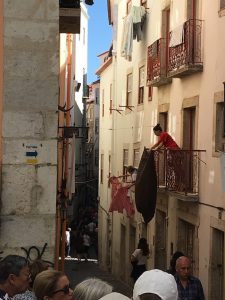
Once at the hotel we popped out for a bite to eat – found a VERY local place where Janeen had the fish! There were maybe 6 tables and a counter where you placed all your orders. Not any English being spoken in the place!
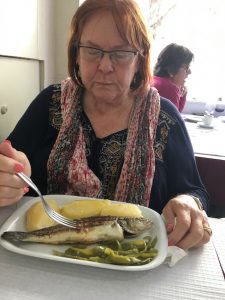
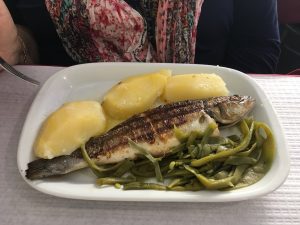
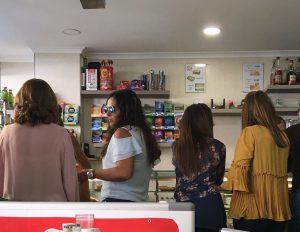
Again, wonderful history of the,area. Certainly intricate Discoveries monument. Must say lunch looked interesting. Can’t for the next history lesson, enjoy as I am vicariously on this tour with you.